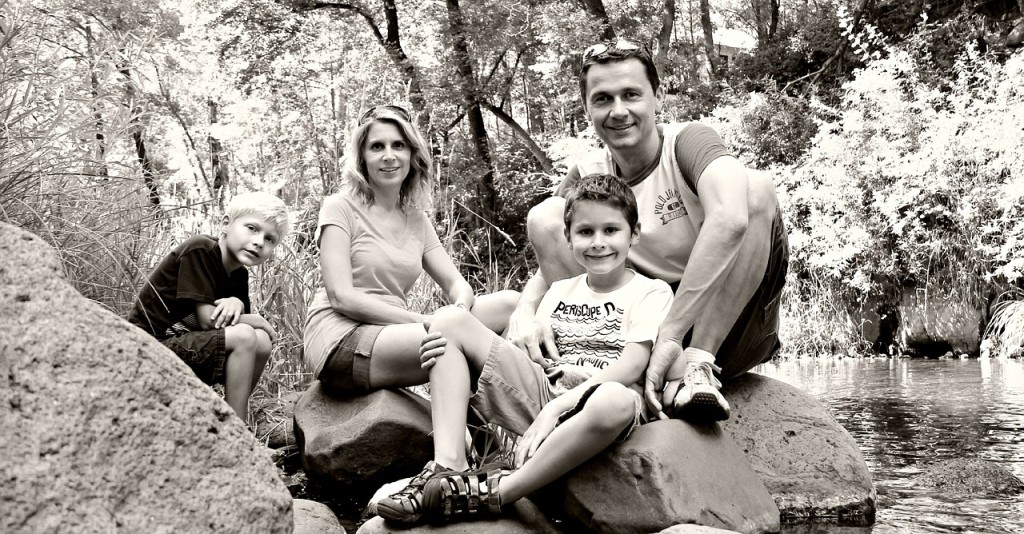7 Tips for Raising Resilient Children in a Crazy World
All the standard stuff of childhood is still a challenge.
Raising resilient children is a mission
Here are few ideas on how to succeed.
1. Provide safety and security without smothering.
Kids who have a safe and secure emotional bond with their parents will be better able to grow and explore with confidence. They well be better equipped to deal with the unique challenges kids face today. In short, they will be more resilient.
Some well intentioned parents who believe in creating a safe base and a secure bond with their parents will unknowingly smother their kids. Attachment parenting is really all about empowering kids to be strong, resilient, and to ultimately become interdependent. Interdependence means that your kids are both connected and independent which needs to be a major goal is raising resilient kids.
What does all of this mean? Well, it’s okay to let your kids figure life out without the constant, comforting security blanket of your care. It’s also okay if your child has to wait a while for you to meet his or her needs. Real life is often about waiting, taking turns, discomfort, adjustment, and self control. However, you just need to be there when they really need you. Kids are resilient when they know their parents have their back!
The goal is to find and keep the balance between allowing your child to be independent and connected all at the same time.
2. Keep a little risk around.
Kids should definitely be safe. But they shouldn’t feel that safety is only connected to a key on your belt loop. Show them that life comes with an acceptable amount of risk. Raising resilient children means reminding kids they’re reasonably safe when they cross the street without you, ride their bike out of your sight, or drive to the mall, because they are prepared to handle the risk.
Hovering says, “you’re not going to make it without me.”
Resilient children are capable not coddled. They are comforted when needed but also encouraged to take risks.
3. Show kids how to ride it out and think it through.
Teach kids to accept some anxiety and push through to active problem solving.
Assure your child that it’s normal to be nervous. Demonstrate how anxious moments can lead to productive solutions in a scary or uncomfortable situation.
Brainstorm together, write pros and cons lists, ask a leading question.
Help your child persevere through tough times or difficult emotions and bounce back with solutions in mind.
4. Refine your child’s survival skills.
Confidence can go a long way in a crazy world. Communicate and connect with your kids so they feel supported but also instruct them specifically and teach them so that healthy interdependence grows.
For example, a self-conscious child may need some hugs at home. But at school, she’d be better served by discussion with you about how to hold her posture, where to look, or how to introduce herself.
Concrete skills and pre-planning gives kids confidence built on competence, a great help for kids managing anxious moments on their own.
5. Free up your child for failure.
Everyone, even your kids, should be given the freedom to strike out, mess up, flake out, fall down, and flat out fail at life. No matter what Facebook or Instagram says.
Resilience comes with facing the consequences of their own mistakes and poor judgment, overcoming the desire to give up, and attacking life with new insight.
6. Be an emotional management role model.
Simply reveal some of your tough moments so that theirs don’t seem so scary.
What do you do when your feelings threaten to overwhelm wisdom and prudence?
Pray? Meditate? Journal? Communicate?
Your modeling, and a sense of humor, can help your child learn to manage his or her emotions with more acceptance, calm, and effectiveness.
7. Remember the job.
Your parental goal is to raise children who will become healthy, well-adjusted adults.
Our crazy, challenging, mixed-up world needs grown-ups with strong minds and stronger coping skills.
Enjoy the challenge today. Reap the rewards for years to come.
If you like this article and want to learn more about raising resilient kids you can visit Crossroads child counseling page by clicking here.
Contact us by calling 623-680-3486, texting 623-688-5115, or emailing info@crossroadsfcc.com and ask to speak with one of our child counselors. You can ask all the questions you have to see if Crossroads is the right fit for you.
